To receive future Davidson
eNews-Updates,
sign up here.
|
|
|
The applications for the Davidson Academy, Davidson Fellows Scholarship and THINK Summer Institute are all open with deadlines approaching. See details below for each of these programs and apply today! |
|
|
|
|
What's New in Gifted Education
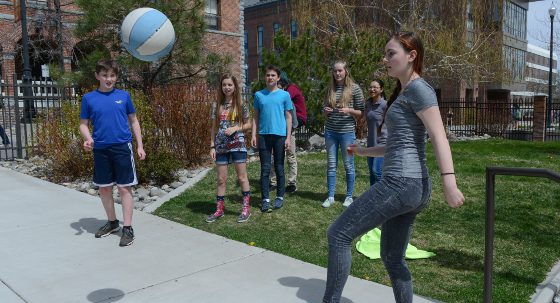
|
Summer Program Options for Gifted Students
There are many factors to consider when deciding on a summer program for gifted students. Where is the program located? How will social/emotional needs be met? Residential or non-residential? Good summer programs provide gifted students challenging opportunities they may not have access to during the school year and meet a variety of interests. See these Davidson Gifted Database articles for some excellent summer options:
Browse the Davidson Gifted Database's
entire list of summer programs. Please note that 2019 application deadlines for certain summer programs may be approaching soon.
Also see
the
Davidson
lists of
scholarships
for
high school
students
and
younger
students.
If you know of a great summer program for academically gifted students, please
let us know
at
admin@davidsongifted.org.
2019 THINK
Summer
Institute
Among the most academically rigorous summer programs is the
Davidson
THINK
Summer
Institute,
which runs July 13 through August
3. Students can earn up to six college credits at this three-week residential summer program on the campus of the University of Nevada, Reno. To qualify, students must be 13 to 16 years old during the program and
submit an
SAT or ACT
score. Tuition is $3,950 and covers course credits, books and materials, room and board, and the cost of planned activities. Need-based scholarships are available.
Apply today - space is limited and the final application deadline is March
29!
|
|
|
|
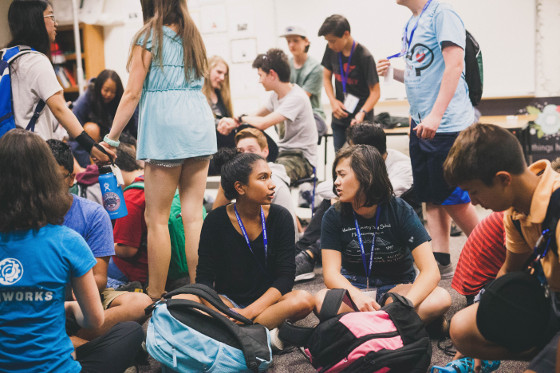
|
Updates
from Around
the Gifted
World
|
|
|
|
In the Spotlight
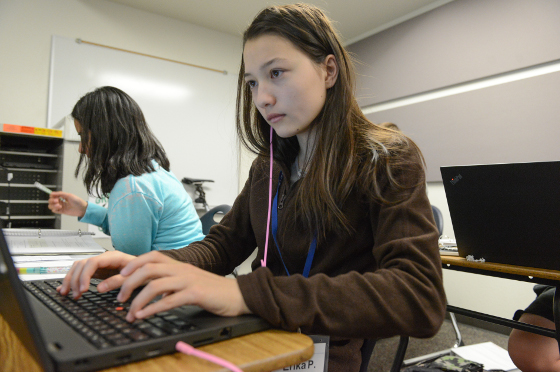
|
Evaluating Online Learning Programs with College Admissions In Mind
Stacy Hawthorne, Director of Online Learning at the Davidson Academy, offers her perspectives on the growing trend of online learning.
With online learning on the rise, its accessibility and impact is starting to influence the college admissions process. More than half of all U.S. colleges and universities report specifically targeting online high school students in their recruitment efforts[1]. Having online experience in high school can help strengthen a college application and help a student succeed in college, since more than 31 percent of all undergraduate students take at least one online course[2], a number that has been steadily increasing.
Therefore parents and secondary students should become informed consumers when evaluating online learning programs. Based on research in best practices in online education, I recommend looking for online courses that are collaborative, flexible, personalized, rigorous, and encourage critical thinking and rich discourse.
- Collaborative courses contain synchronous (real-time) instructional elements requiring collaboration among participants. Online learning should not be isolating. As Nora Lewis, vice dean of professional and liberal education for the School of Arts and Sciences, said in the Pennsylvania Gazette, “We can build an incredibly vibrant, interactive community of people” online[3].
- Online courses should have a flexible learning plan that allows them to be responsive to the needs of individual students. Assignments, instructional materials, and outcomes can easily be adjusted based on student strengths and interests without altering the expected course outcomes.
- Personalized courses provide students with a highly supportive learning environment that address the needs of individual learners and provide opportunities for student voice in learning. Instructors should be present in the course and knowledgeable about their content and the students so that instructional materials and/or the actual course design can be personalized to the needs of each cohort of students.
- Online courses with the appropriate level of rigor will challenge participants to achieve to their potential. A supportive online classroom encourages academic risk and growth. This type of challenge is important to college and university admissions officers[4].
- Critical thinking is a highly touted 21st century learning skill that is highly valued by secondary education and potential employers[5]. Quality online courses will provide opportunities for participants to form and support opinions and experience a variety of perspectives.
- Rich and authentic two-way discourse between all participants is a hallmark of quality online learning. This discourse can happen in real-time through video-based discussions or with authentic questions in discussion boards. The emphasis is on quality of discussion and not on quantity. The students and the instructor both play vital roles in maintaining the quality of the discourse.
There is much to be excited about in the emerging field of online learning. Parents and students in today’s learning climate are tasked with recognizing the potential of online learning and identifying ways to make it part of a diverse educational portfolio that will be viewed competitively in the college admissions process.
See below for more information about Davidson Academy Online. |
|
|
|
|
These Davidson Gifted Database charts provide comparisons of popular online programs used by gifted students. These program can be utilized in a variety of ways; enrichment, tutoring, curriculum replacement, independent study, etc. |
|
|
|
|
Davidson
News
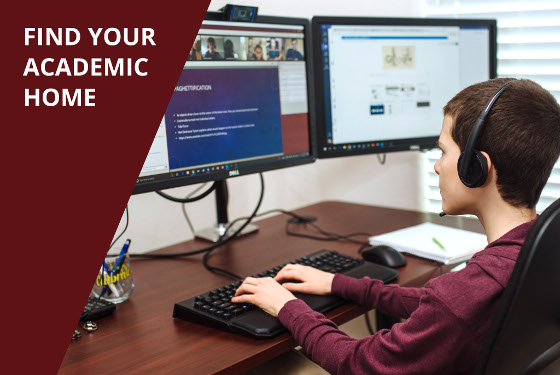
|
Davidson
Academy -
Online and
Reno
Campuses
The
Davidson Academy
offers two
educational
options
specifically
designed to
meet the
needs of
profoundly
gifted
students –
an online
campus
for those
living
anywhere in
the U.S. and
a day school
on the
University
of Nevada,
Reno campus
for local
residents. Both options
are centered
on a
rigorous
academic environment
where
students thrive among
their
intellectual
peers.
Academy
classes are
grouped by
ability
rather than
by age,
providing
profoundly
gifted
students an
educational
opportunity
matched to
their
abilities,
strengths
and
interests.
Application
Deadlines
Approaching!
The
2019-2020
applications
are open
for both the
Davidson
Academy
Online
campus
and
Reno
day school!
Visit the
Qualification
Criteria and How to Apply
pages to
read about
the
application
process.
The
deadline to
apply for
the Reno
campus is
Jan. 30. The
deadline to
apply for
the online
campus is
March 31.
Davidson
Academy
Online:
In-Person
Regional
Event
Davidson
Academy
Online
In-Person
Regional
Events offer an opportunity to hear more about Davidson Academy's online campus. The
events will include presentations on admissions, curriculum, technology, and our vision. Attendees will have the opportunity to ask questions throughout.
The
following
event
date has
been
announced
(with more
to come!):
Thurs., Jan.
31,
6:00 p.m. at
Rainbow
Library
(Conference
Room), 3150
N Buffalo
Dr.,
Las Vegas,
NV
89128. See the
Davidson
Academy
Events page
for more
information.
Please
RSVP here >
Davidson
Academy
Online
Virtual Open
Houses
Join us to
learn more
about this
exciting
online
learning
option on
the
following
dates: Thurs.,
Jan.
24, 5 p.m. PT; Tues.,
Feb. 19, 6 p.m. PT;
and,
Wed. Mar. 13,
4 p.m. PT.
RSVP here >
For more
info, please email outreach@davidsonacademy.unr.edu. |
|
|
|
2019 Davidson Fellows Scholarship Application
The 2019 Davidson Fellows Scholarship application is now
available online. Young people 18 and younger have the opportunity to earn a $50,000, $25,000 or $10,000 scholarship in recognition of a significant piece of work in the categories of science, technology, engineering, mathematics, music, literature and philosophy, or a project that represents outside the box thinking. The application deadline is
Feb.
13. |
|
|
|
Davidson Young Scholars
The
Davidson Young Scholars program provides FREE services designed to nurture and support profoundly gifted young people and their families, including talent development, educational advocacy, an online community
and the
Ambassadors
program. Young Scholars can also access annual get-togethers,
a summer
camp for 8
to 12 year
olds and challenging online
middle
school
courses. Applications are due the first of each month.
See the
How to Apply and
Qualification Criteria pages. |
|
|
|
Legislative
& Policy
News
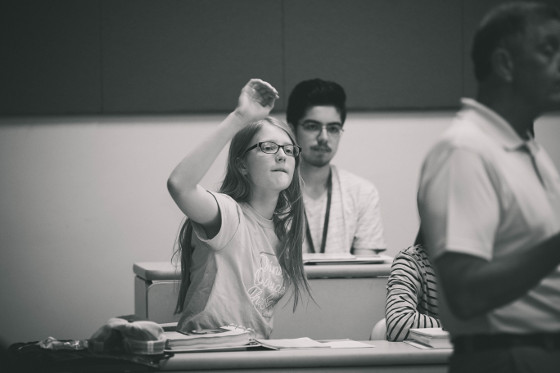
|
COLORADO – The Aurora school district has made incremental progress in increasing the proportion of students from underrepresented groups into high ability programs. Source: Chalkbeat
ILLINOIS – Chicago Public Schools is planning to convert a part-gifted, part-neighborhood school into an exclusively gifted school. Source: Block Club Chicago
KENTUCKY – The Jefferson County school district recently passed a racial equity plan that aims to cut the achievement gap between students of different racial backgrounds, promote a more diverse teaching staff and improve access to programs for minority students. Source: WDRB
NORTH CAROLINA – A new Gaston County school will focus in part on collegiate prep and gifted education programming. Source: Gaston Gazette
TENNESSEE – A proposed plan in Memphis would begin screening all first-graders for giftedness in an effort to make enrollment in gifted programs more equitable. Source: Chalkbeat
TEXAS – A proposal would convert two Dallas elemanary schools into magnet schools with expanded gifted and talented programming. Source: Dallas Morning News
VIRGINIA – A proposed Loudoun County school district budget would create five gifted education teacher positions to support the transition to a school-based model for gifted education. Source: Loudoun Times |
|
|
|
On the Web
Challenging Summer Options - Epsilon Camp & MathPath
|
|
|
|
Application season has begun for
Epsilon Camp,
a
two-week
summer
residential
camp
serving
promising
young
mathematicians
and
their
families
through
an
intensive
student
program
and
parent
workshop.
The
mission
of
Epsilon
is to
connect
precocious
children
(7-11)
to
professional
mathematics
and
build a
supportive
community
with
peers
and
families.
Epsilon
Camp
2019
will be
held
from
July
14-27, 2019.
Admission season has also begun for
MathPath, a four-week summer residential camp whose mission is to inspire and advance the most mathematically gifted middle school age students (11-14).
Epsilon and MathPath, both founded by Dr. George R. Thomas, are independently run and differently organized enrichment camps where students advance in a non-competitive atmosphere. |
|
|
|
Featured Articles and Resources
The
Davidson Gifted
Database features articles, resources and state policies to help students, parents and educators pinpoint gifted information:
-
Free Spirit’s online professional development brings experts in education right to your screen. The free on-demand Free Spirit Webinars address timely and relevant topics in early childhood education, bullying prevention, gifted education, and more.
-
InterGifted provides resources, support, and an active community for gifted, twice exceptional, and multi-exceptional individuals, internationally.
-
Quad Preparatory School (New York, NY) provides twice exceptional students the opportunity to capitalize on their strengths and further develop their passions, while receiving emphatic support and empowerment to cope with their challenges.
-
The article Your child is gifted! Now what? provides some great first steps after your student is identified as gifted.
|
|
|
|
|
|
“People always ask if I am a 'genius,' but my parents explain that genius is an action ― it requires solving big problems that have a human impact . . . You probably have an image of “gifted” kids as weird bookworms with no social skills. But I think of myself as any other normal, happy kid.”
-- Kairan Quazi, in the Huffington Post op-ed, I’m Only 9, And I’m Already In College. Here’s What Life Is Like For Me. |
|
|
|
|
If you have information to include in a future newsletter, please contact us at admin@davidsongifted.org.
If you have been forwarded this eNews-Update, and wish to receive future editions, sign-up here.
|
|
|
|
|
|
|